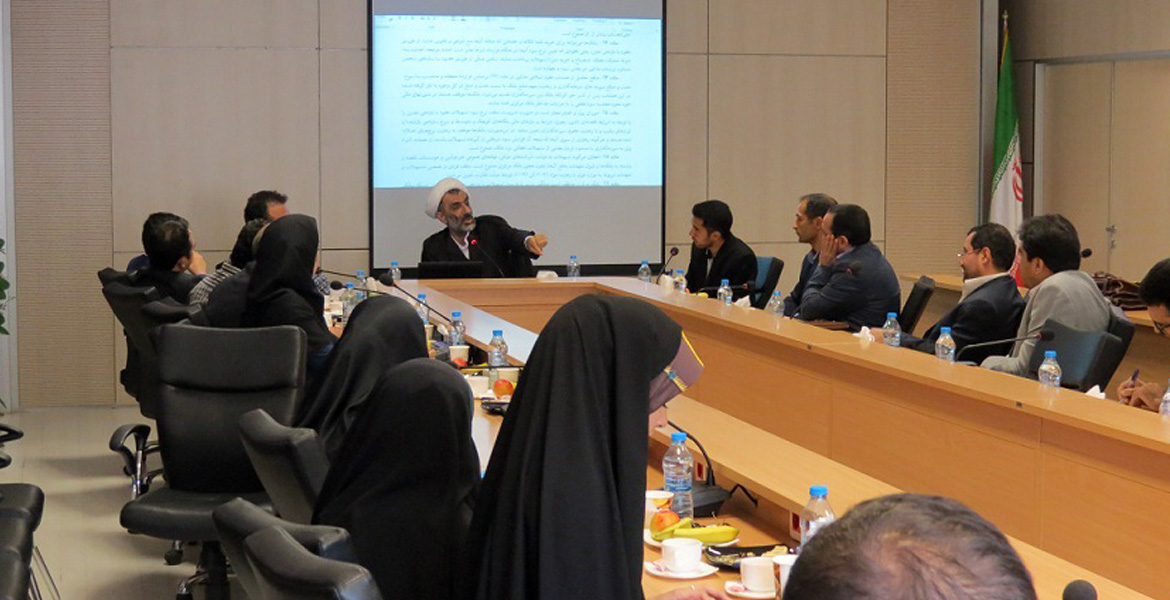
The IAIF held the 14th specialized session on the review and critique of new interest-free banking plan on 11 Jul. 2017.
Dr. Masoumi Nia, a member of the Sharia Council of the stock exchange and a faculty member of Kharazmi University, stated the first law on interest-free banking was enacted in 1986.
‘Of course, there are still a number of problems, including the numerous disadvantages of banks in conducting sharia transactions. Banks have been obliged to act on the basis of a proxy contract, but in practice they have become owners. In today banking, usurious loans are carried out under the guise of Islamic contracts which are in practice formalization. Foreign exchange operations of banks are typically contrary to Islamic banking and in general banking contracts have to be sufficient incentive for both parties to withdraw from the contract, which in turn leads to formalization,’ Masoumi Nia said.
There are two views on the structure of banks, one is related to the way the bank is run and the other is related to the engineering and structure of the bank, but the editor of this plan means the first concept. In this plan, the management of the bank has been assigned to the board of directors and no change has been made in the general structure of the bank. The plan mostly has explained the way banks are run and therefore no change has been made in the structure of the bank.
Pointing out the structure of banks in this plan is usurious, he added although the role of the Sharia Council in this plan has been considered more seriously than before, but it has no effect. If the main structure of the bank is not reformed deeply, the Sharia Council won’t be efficient for the Central Bank. In the new plan, the introduction of the members of the Sharia Council is the responsibility of the governor of the Central Bank. The council consists of 10 people, 5 of whom are jurists supervising the enactments of the council. The Chairman or Deputy Chairman, Deputy or Director General, a legal assistant, a lawyer and an economist shall be members of the Council.
This researcher of Islamic economics stated in the new interest-free banking plan, all partnership contracts have been eliminated and limited to fixed income exchange contracts. The policy-makers of the plan argue that partnership agreements are conducted in a formalization way and the real rules of partnership are not observed, so the use of sharia contracts becomes a cover for fixed profits.
The country's economy has been deprived of the benefits of partnership agreements, while the bank can make ficticious contracts more easily in exchange contracts.
Another problem regarding the structure of the bank is fundamentally related to the usurious structure of the bank because this bank was not established to enter into real activities, so we have created a serious problem for the people with these laws.
He added until this structure is not changed, it is not possible to implement sharia contracts and the desired law is a law that can properly implement both exchange contracts and partnership contracts.


